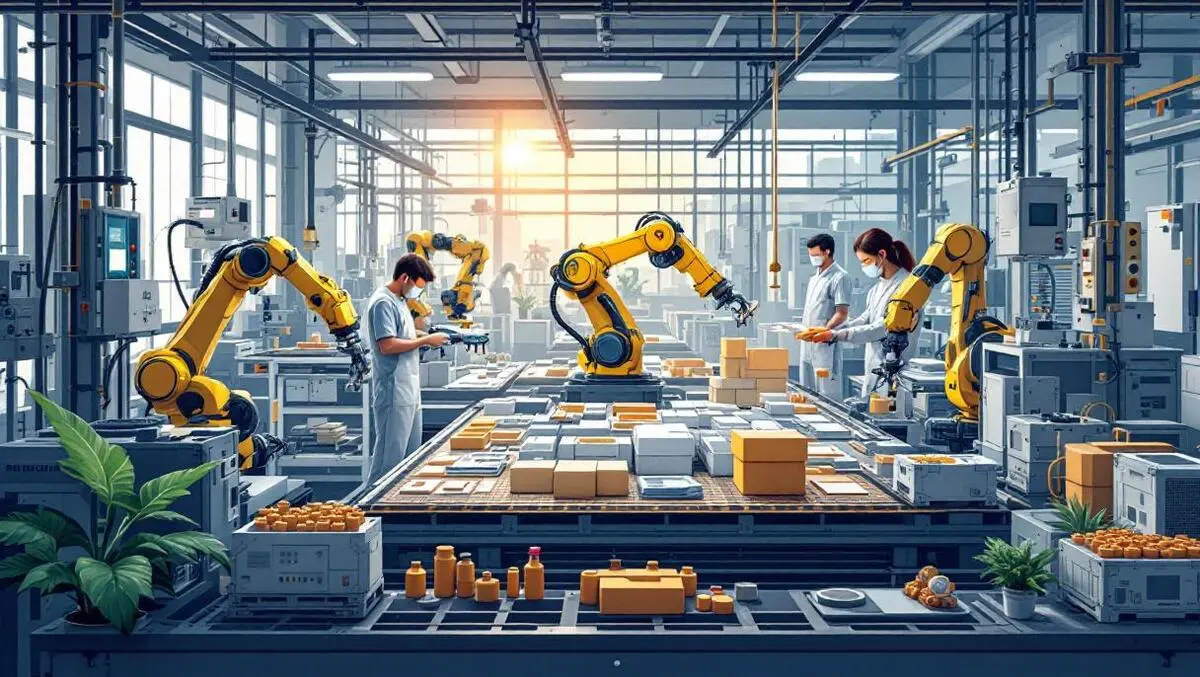
AI adoption surges in Asia Pacific manufacturing for quality, efficiency
Manufacturers in Asia Pacific are increasingly investing in artificial intelligence to address operational challenges and build resilience, according to Rockwell Automation's 10th annual State of Smart Manufacturing Report.
The research, which surveyed over 1,500 manufacturers globally, identified a significant shift in the region with companies moving from experimenting with digital technologies to actively executing scaled AI and automation initiatives. The study covered manufacturers across leading countries including China, Japan, India, South Korea, Australia, and New Zealand.
AI adoption rises
Across Asia Pacific (APAC), 94% of manufacturers have either invested or plan to invest in AI, machine learning (ML) and next-generation AI techniques such as generative and causal AI within the next five years. The majority are focusing these technologies on specific business challenges.
Quality control has emerged as the top use case, with 47% of surveyed manufacturers highlighting it as their primary AI application. Cybersecurity closely follows at 44%, and 43% of respondents cite process optimisation as a key area for AI integration. These findings reflect an emphasis on improving production quality and managing evolving threats.
Nearly half of the surveyed businesses in APAC plan to increase the use of AI, while efforts to boost automation are being ramped up by 43% in the region. Talent shortages and the need to enhance operational efficiency are driving these investments.
Addressing workforce and cybersecurity
AI and automation are seen as critical tools to mitigate skilled labour shortages, with 46% of APAC businesses believing AI/ML will help address these staffing challenges. Additionally, 42% report they are adding or using technologies to create more engaging jobs, suggesting an intent not just to replace tasks, but to make roles more appealing and sustainable.
The report also demonstrates the continued importance of cybersecurity. In APAC, 95% of manufacturers consider cybersecurity practices and standards to be moderately to extremely important. However, 28% regard a lack of leadership awareness or the underestimation of cybersecurity risks as a significant obstacle to robust defences.
"We're seeing strong momentum across Asia Pacific in adopting AI and smart manufacturing technologies, not just as buzzwords but as mission-critical capabilities to drive quality, agility and growth. What stands out this year is the region's tech-first mindset, with nearly half of the manufacturers already scaling AI to address workforce gaps, cybersecurity risks, and evolving sustainability targets. The focus has clearly shifted from experimentation to execution," said Scott Wooldridge, Regional President, Asia Pacific, Rockwell Automation.
Globally, the research also notes that cybersecurity concerns have grown, with cybersecurity now ranking as the second biggest external risk. Proactive use of AI for cybersecurity is increasing, with 49% of manufacturers planning to use AI in this area next year, a rise from 40% a year ago.
Sustainability and efficiency
Sustainability is increasingly being seen as an efficiency driver. In APAC, 55% of respondents stated their pursuit of sustainability is primarily about improving operational efficiency, up from 39% the previous year. Smart manufacturing technologies are being used to make processes more sustainable and to accelerate responsiveness to changing regulations and market pressures.
Broader global context
The study found that 81% of manufacturers globally are accelerating digital transformation in response to internal and external pressures. Cloud computing, AI, cybersecurity, and quality management featured as the primary technology investment areas.
Manufacturers worldwide are increasingly moving beyond experimentation with advanced technologies. The report highlighted that organisations investing in generative and causal AI increased by 12% year-on-year, suggesting a maturing approach to deploying such tools at scale. Quality control remains the leading AI application globally, with 50% planning to implement AI/ML initiatives to support product quality in the next year.
"Today's technology advancements are unlocking new opportunities where the combined potential of people and technology will shape our collective future," says Blake Moret, Chairman and CEO, Rockwell Automation. "As this year's report shows, manufacturers around the world are using smart manufacturing to navigate disruption and create new opportunities for speed and agility. At Rockwell, we believe innovation and resilience go hand in hand. With the right technology and right people, we can simplify complexity and lead with confidence during times of dynamic change."
Skills and leadership
The increased focus on digital transformation is influencing workforce development. The report notes a 5% rise in the importance placed on analytical and AI skills for leaders. Nearly half of respondents now view the ability to apply AI as an extremely important skill, up from just 10% in the previous year. This reflects an alignment of talent development with technical innovation objectives throughout manufacturing organisations.
The State of Smart Manufacturing Report collected feedback from respondents ranging from management to C-suite roles, spanning industries such as consumer packaged goods, food and beverage, automotive, semiconductor, energy, and life sciences, and capturing perspectives from companies with revenues from $100 million to over $30 billion.


